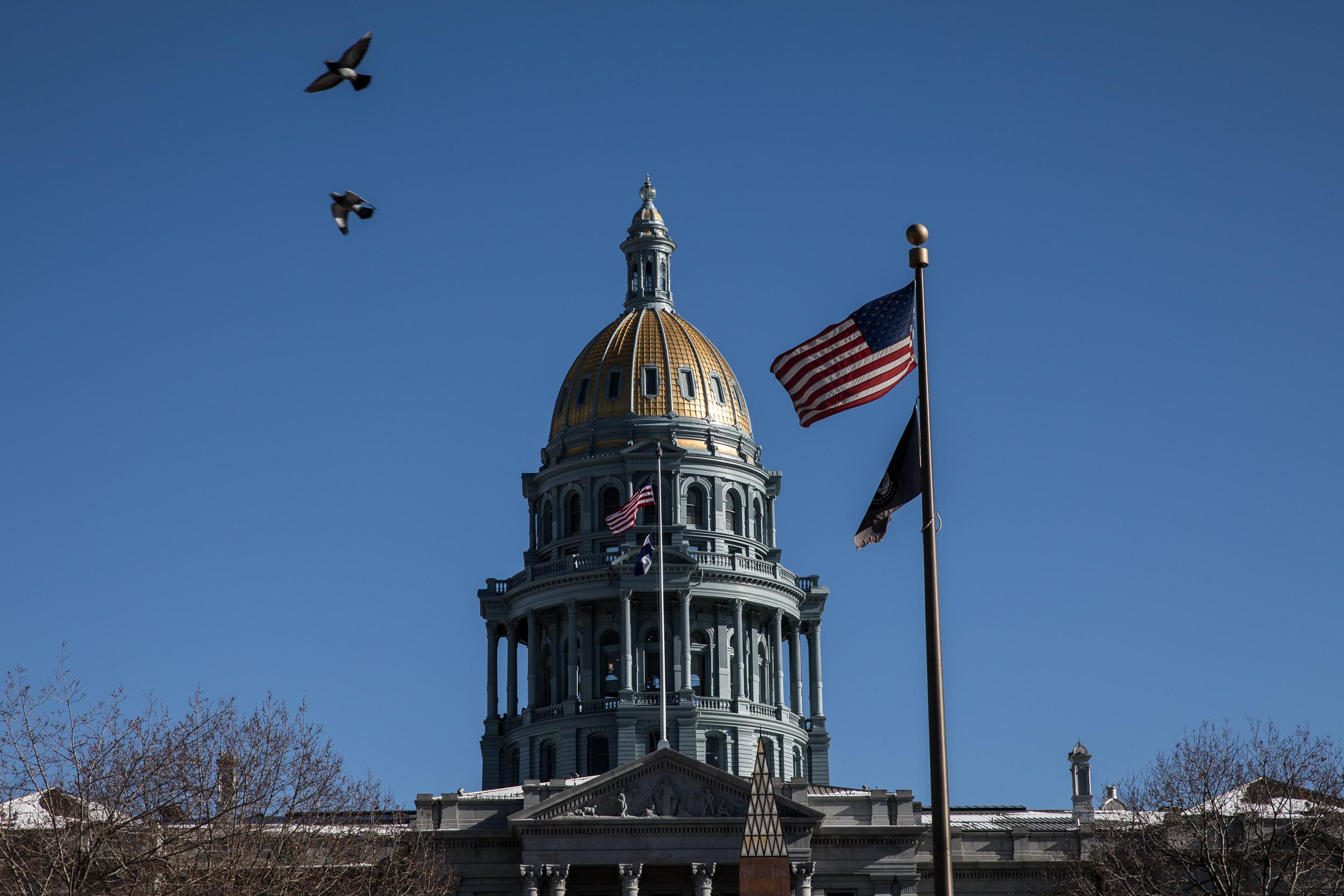
UPDATE: The repeal bill passed the state Senate on a vote of 19-13 on Friday, Jan 31. Three Senators were absent. After the Senate, the bill proceeds to the House, where it's also expected to pass.
Colorado Democrats have tried six times in recent years to repeal the death penalty. Each attempt has involved hours of difficult testimony as lawmakers and the public wrestle with the principles and practicalities of a lethal criminal justice system.
This year, the reformers expect to finally succeed. But a committee hearing on Monday — the bill’s first — showed that the process will again be deeply emotional, and even divisive, especially for families bereaved by violent crime.
“My brother was murdered. And many of you have heard that story many times,” said Maisha Fields, daughter of Democratic Sen. Rhonda Fields, launching a scathing critique of the repeal bill.
Fields’ brother, Javad Marshall-Fields, and his fiancee Vivian Wolfe were murdered in 2005 by two men who are now on death row. As her mother looked on, Fields said the Democratic bill is “fighting for people who are guilty,” rather than the victims.
The families of murder victims are not a singular voice, though. A coalition of groups, including Equal Justice USA and the ACLU of Colorado, organized a letter from more than 60 bereaved family members who want to see the death penalty abolished, including many who spoke Monday.
“We’ve had enough trauma, enough violence in our state, and we don’t need it anymore,” said Sharletta Evans. Her 3-year-old son, Casson, was murdered in 1995.
Evans told lawmakers that the multimillion-dollar cost of a capital case would be better spent on supportive services to address the root causes of violence. Other victims’ relatives said that the death penalty would have taken away their chance to get answers from murderers, or that it violated their Christian faith.
“I’ve been accused of not loving my mother because I’m opposed to the death penalty,” said Victoria Baker-Willford, whose mother was brutally murdered. She choked up as she explained that just as her mother’s life had value, so did the killer’s.
The current proposal has attracted support from two Republican Senators, showing it may succeed despite the opposition of Sen. Fields. Democrats currently only have a one-vote advantage in the Senate and the vast majority of Republican legislators are expected to oppose repeal.
The bill advanced on a 3-2 party-line vote in the Democrat-controlled committee. Beyond the stories of grief and reckoning, the hours-long hearing returned to many of the long-standing arguments about the death penalty.
Sen. Bob Gardner, a Republican, staked out the idea that voters should be responsible for the decision through a ballot measure.
“This is such an important issue. So much of it goes to the core of what we think is appropriate for our government to do,” Gardner said.
District Attorney George Brauchler, who has prosecuted several death penalty cases, most notably of the Aurora theater shooter, said that voters generally want to keep the death penalty, needling Democrats for the 2016 failure of a repeal initiative in liberal California. He was backed in that call by Jim Gumm, father of murdered Adams County Deputy Heath Gumm.
Public opinion has shifted nationally, with support for the death penalty falling from 80 percent in 1995 to 56 percent in 2019, according to Gallup. Moreover, most people surveyed now say they prefer life without parole over death as the punishment for the most severe crimes.
Denver District Attorney Beth McCann — who opposes capital punishment — argued that the question isn’t appropriate for the ballot, saying that it goes to constitutional questions of equal protection.
People of color were the defendants in 91 percent of the state’s capital prosecutions from 1999 to 2010, according to the American Civil Liberties Union. Nationwide, more than 150 people have been exonerated and released from death row.
Three men await a death sentence in Colorado, all of whom are black. Supporters of the death penalty argued that all three are clearly guilty, while critics pointed to countless similarly horrifying cases that didn't result in a capital sentence.
Then there was the question of deterrence and costs.
Sen. John Cooke, a Republican former sheriff, argued that the punishment can still sway people from committing heinous crimes, but others in criminal justice said that most people don’t consider punishments when they’re driven to kill.
Cooke and others suggested that the death penalty can be a useful tool -- or threat -- for prosecutors as they try to strike a plea bargain. Brauchler and other district attorneys denied using the death penalty to gain leverage but said its mere existence drove defendants to offer up deals on their own.
“Without the leverage, the entire judicial system would be bogged down,” said Dave Young, a DA representing Adams and Broomfield counties.
McCann responded that the threat of death was so severe that it could unbalance the system.
“It’s a sledgehammer,” she said.
Previous bills have failed on doubts from influential Democratic legislators, including hints of a veto from former governor John Hickenlooper in 2013. Sen. Fields’ opposition, and anger over how quickly the bill was moved through the process, ended an attempt at repeal last year.
Editor's Note: This story has been updated to reflect that a number of organizations helped arrange the letter from families of murder victims urging the repeal of the death penalty.







